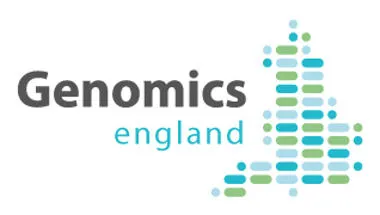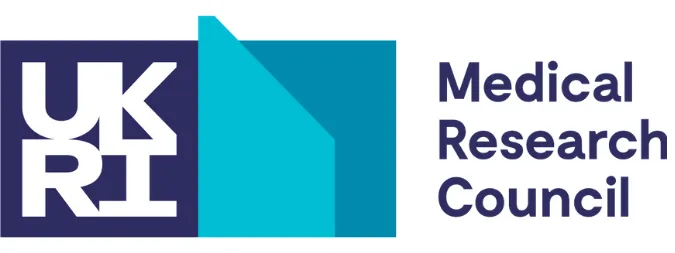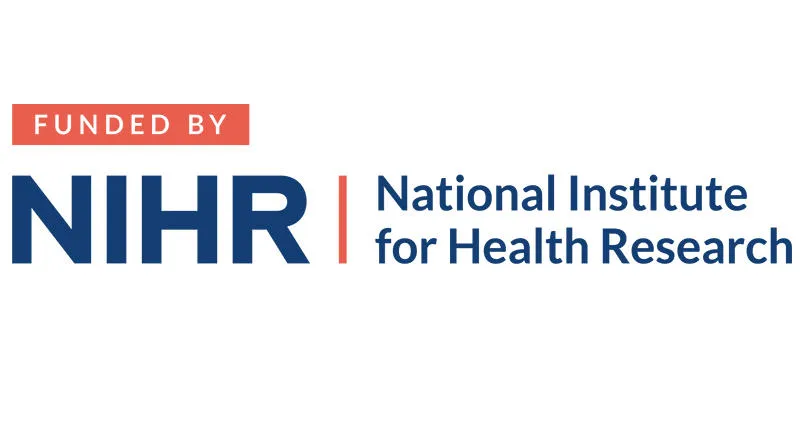Investment in the earliest stages of life is increasingly recognised to improve health across the life-course, beginning with the health of parents before pregnancy, in embryonic life, through to infancy, childhood, and into adulthood. eLIXIR combines information from routine maternity and neonatal health records and blood samples at two acute NHS Trust hospitals, along with mental health and primary care data. The study is able to address relationships between maternal and child physical health, and to investigate interactions with mental health. Participants are predominantly residents of South London, in areas with high levels of deprivation and ethnic diversity.
The eLIXIR data-linkage project uses opt-out consent to collect routine maternity and neonatal clinical patient data (GSTT and KCH NHS Trusts), mental health data from the SLaM CRIS platform, and primary care data from the LDN platform, for those registered with a GP in Lambeth.
The eLIXIR biobank offers the opportunity to study the mechanisms of health and disease in our data-linkage population by collecting blood samples from mothers, with informed consent. We are building a unique bioresource that can be used to investigate the underlying biological processes involved in pregnancy and those influenced by environmental factors.
The eLIXIR team includes members King’s College London Faculty of Life Sciences and Medicine and the Institute of Psychiatry, Psychology and Neurosciences (IoPPN), along with services users and patient representatives. See the full list.
The eLIXIR Born in South London project has now been successfully awarded a MRC Longitudinal Population Study Grant which will enable us to operate for the next 5 years and continue building this dynamic mother-child database.
For Participants
Every woman attending antenatal care in our hospital trusts will automatically be included for use of their routine data and their babies’, unless they express a wish not to take part (a process called opt-out consent).
Please find more details on how to do so under ‘Your Data’ further down on this page.
In contrast to use of data, we will ask you in person for express permission to take an extra blood sample for eLIXIR research, when you attend your first antenatal appointment (fetal scan appointment) at GSTT. You will be approached by a member of our research team who will either contact you beforehand by telephone or email, or in-person at your appointment. If you kindly agree to take part, we will ask you to review and sign a consent form which gives your agreement to an extra sample being taken when you give your routine blood samples. This is two extra tubes of 6 ml each, just under a tablespoon of blood.
Your Data
We make every effort to ensure all women having their antenatal care at our hospitals are aware of the eLIXIR study. At GSTT, information is available on the BadgerNet Maternity app and at KCH, this is provided in form of a leaflet in the maternity booking pack.
If you have any questions or would want to have your or your baby’s health records removed from the data linkage, please contact, e: elixir@gstt.nhs.uk or t: 0773 816 8907, or write to: Lucilla Poston/ Tisha Dasgupta The eLIXIR, Born in South London Study, Department of Women and Children’s Health, 10th Floor, North Wing, St Thomas’ Hospital, London SE1 7EH
View our Project Privacy Policy for details on how we use your data and your data protection rights.
Please see our Projects featured below, but for a full list of projects please download this document.
Projects

Data-Linkage
The eLIXIR data-linkage project uses opt-out consent to collect routine maternity and neonatal clinical patient data (GSTT and KCH NHS Trusts), mental health data from the SLaM CRIS platform, and primary care data from the LDN platform, for those registered with a GP in Lambeth. We hold the approval to also link with emergency and admissions data (HES), national fertility data (HFEA), and immunisation records (NIMS), as well as expanding primary care data to other boroughs in South London, namely: Southwark, Lewisham, and Bromley; the process to link these new data sources is currently ongoing. At present, eLIXIR holds over 80,000 records. All records are deidentified, including masking of identifying information in open-text fields and use of pseudonymised identifiers. The data refresh process occurs every 6 months, and each update includes all retrospective data since conception of the cohort (October 2018), thus building a dynamic cohort.

Biobank
The eLIXIR biobank offers the opportunity to study the mechanisms of health and disease in our data-linkage population by collecting blood samples from mothers, with informed consent. We are building a unique bioresource that can be used to investigate the underlying biological processes involved in pregnancy and those influenced by environmental factors. Mothers are consented by members of the eLIXIR research team at their first antenatal visit to GSTT for an additional sample to their routine blood collection. Samples are immediately processed and stored as aliquots of whole blood, serum, and plasma at -80°C. To date, we have samples from over 1500 women. The Research Tissue Bank is listed on the UKCRC TDCC website and the eLIXIR team encourage applications from researchers who are interested in using the samples.

COVID-19 Sub-Study
The eLIXIR Biobank is also recruiting to the COVID-19 Sub-study, investigating the effect of COVID-19 in pregnancy. If you agree to take part in the COVID-19 Sub-Study and give a blood sample, we will be able to test your blood for the presence of antibodies to the virus. This test measures your antibody response to two different parts of the virus, so can distinguish between recent natural infection and vaccination. However, as we are still learning about how long antibodies stay in your blood after vaccination, it may not be possible to distinguish between a vaccination and an old infection. If you are interested in finding out more, you may be eligible to take part in the Brain Imaging in Babies study, which offers further antibody testing and an MRI scan of your baby’s brain. If you would like more information, please contact the study team on gsttr.bibs@nhs.net

Our collaboration with Genomics England
We are working with Genomics England to improve maternal health and reduce inequalities in this area. Genomics England’s support is part of its Diverse Data programme – a programme aiming to tackle underrepresentation within health data with a goal of supporting equitable outcomes to genomic medicine for all. It supports a range of studies that investigate the genes that affect pregnancy outcomes in people from different backgrounds, as well as maternal complications during pregnancy. Through Whole Genome Sequencing provided by Genomics England we are looking to promote and facilitate research to better understand what are the genetic factors that influence maternal health outcomes. How are we collaborating? Participants who have consented to joining eLIXIR will be asked by the eLIXIR research team if they also wish to join the National Genomic Research Library (NGRL) - a database managed by Genomics England. What is the NGRL? The NGRL is a database consisting of healthcare data and biological samples, established to facilitate future research. All data in it has been de-identified, so no individual who has consented to having their health information stored can be identified by researchers. By comparing the genome sequences and health data of multiple people in one place, researchers can see patterns that may not be visible with the data from only a few participants. This will improve and increase future research opportunities so we can collectively better understand the genetic reasons behind poor maternal health outcomes and encourage effective prevention and new treatment approaches. What do I have to do if I want to join the NGRL? You do not have to do anything new other than read the Patient Information Sheet (PIS) for the NGRL and sign a consent form. If, after reading the PIS, you consent to take part to the NGRL we will be using the sample you have already donated for the eLIXIR study.
Publications
Recent publications
- De Backer, K., Seed, P., Burton, S., Montgomery, E., Sandall., J., Poston, L., Easter, A., The eLIXIR Born in South London Partnership. Involvement of Children’s Social Care in pregnancy: prospective population-based UK cohort study [submitted]
- Fernandez Turienzo, C., Burton, S., Khan, Z., Rayment-Jones, H., Newburn, M., Seed, P., Vowles, Z., Sandall, J., Easter, A., Poston, L., The eLIXIR Born in South London Partnership. The impact of community-based continuity of care models for women living in areas of social disadvantage and ethnic diversity in the United Kingdom: a prospective cohort study using the eLIXIR Born in South London maternity-child data linkage [submitted]
- Rayment-Jones, H., Burton, S., Bridle, L., Mohamud, Y., Easter, A., Sandall, J., The eLIXIR Born in South London Partnership. Investigating the role of ethnicity and migration in perinatal inequalities. A cross-sectional study using the eLIXIR Born in South London, UK maternity-child data linkage [submitted]
- Seaborne, M., Jones, H., Cockburn, N., Durbaba, S., González-Izquierdo, A., Hough, A., Mason, D., Sánchez-Soriano, C., Orton, C., Méndez-Villalon, A., Giles, T., Ford, D., Quinlan, P., Nirantharakumar, K., Poston, L., Reynolds, R., Santorelli, G. and Brophy, S. (2024) “Mother and Infant Research Electronic Data Analysis (MIREDA): A protocol for creating a common data model for federated analysis of UK birth cohorts and the life course”, International Journal of Population Data Science, 9(2). doi: 10.23889/ijpds.v9i2.2406.
- Haggar, T., Boulding, H., Pow, R., Dasgupta, T., Silverio, S.A., Nelson, E., Van Citters, A., Mistry H.D., von Dadelszen, P., Magee, L.A. Advancing co-production in local maternity services. RESILIENT Study Policy Lab Report. 2024. resilient-policy-lab-report.pdf
- McGreevy, A., Soley-Bori, M., Tydeman, F., Dalrymple, K., White, S. L., Khalil, A., Poston, L., Duncan, E. L., Dasgupta, T., Mistry, H. D., Fox-Rushby, J., von Dadelszen, P., The RESILIENT Study Group, eLIXIR-BiSL Partnership, & Magee, L. A. (n.d.). The impact of the COVID-19 pandemic on maternal healthcare costs in a UK inner-city multi-ethnic population. .
- Dalrymple, K. V., Tydeman, F., Bone, J. N., Poston, L., Dasgupta, T., McGreevy, A., Wilson, M., Easter, A., Khalil, A., White, S. L., Silverio, S. A., Long, L., Rajasingam, D., Mistry, H. D., The RESILIENT Study Group, eLIXIR-BiSL Partnership, von Dadelszen, P., & Magee, L. A. (n.d.). The relationship between virtual antenatal care and pregnancy outcomes in a diverse UK inner-city population; A group-based trajectory modelling approach using routine health records. .
- Tydeman, F., Dalrymple, K. V., McGreevy, A., Poston, L., Dasgupta, T., Easter, A., Khalil, A., Long, L., Mistry, H. D., Rajasingam, D., Silverio, S. A., Soley-Bori, M., Yangzhong, W., White, S. L., The RESILIENT Study Group, eLIXIR-BiSL Partnership, von Dadelszen, P., & Magee, L. A. (n.d.). Temporal trends in pregnancy outcomes during a health system shock: A retrospective longitudinal study. .
- Chapman, M., G-Medhin, A., Daneshi, K., Bramwell, T., Durbaba, S., Curcin, V., Parmar, D., Boulding, H., Becares, L., Morgan, C., Molokhia, M., McBurney, P., Harding, S., Wolfe, I., Ashworth, M., & Poston, L. (Accepted/In press). Mechanisms for Integrating Real Data into Search Game Simulations: An Application to Winter Health Service Pressures and Preventative Policies. In AMIA Summits on Translational Science Proceedings 2024 https://doi.org/10.1101/2023.09.14.23295499
- Andreeva D, Gill C, Brockbank A, Hejmej J, Conti-Ramsden F, Doores KJ, Seed PT, Poston L; eLIXIR Partnership. Trends in Severe Acute Respiratory Syndrome Coronavirus 2 (SARS-CoV-2) infection and vaccine antibody prevalence in a multi-ethnic inner-city antenatal population: A cross-sectional surveillance study. BJOG. 2023 Apr 27. doi: 10.1111/1471-0528.17508. Epub ahead of print. PMID: 37113111.
- Hildersley R, Easter A, Bakolis I, Carson L. Howard LM, eLIXIR Partnership. Changes in the identification and management of mental health and domestic abuse among pregnant women during the COVID-19 lockdown; regression discontinuity study, BYPsych Open, 2011, 8(4), doi:10.1192/bjo.2022.66
- Carson LE, Azmi B, Jewell A, Taylor CL, Flynn A, Gill C, Broadbent M, Howard L, Stewart R, Poston L; eLIXIR Partnership. Cohort profile: the eLIXIR Partnership-a maternity-child data linkage for life course research in South London, UK. BMJ Open. 2020 Oct 6;10(10):e039583. doi: 10.1136/bmjopen-2020-039583.PMID: 33028561
Conference presentations
- De Backer, K. (2025). Social services involvement in pregnancy: a prospect cohort study in South London. UK & Ireland Marce Society Conference.
- Easter, A. (2024). Maternal Mental Health and Suicidality in the UK during the Perinatal Period. 9th Vilnius Conference on Suicide Methods (invited Plenary).
- Tydeman, F. (2024). Temporal trends in pregnancy outcomes during a health system shock: A retrospective longitudinal study. Royal Statistics Society Conference.
- Dalrymple, K. (2024). Real world evidence versus randomised controlled trials: is the future of nutritional sciences research in electronic health records? British Nutrition Foundation Conference.
- Dalrymple, K. (2024). Analysing Breastfeeding Data: Navigating Challenges and Exploring Opportunities in Electronic Health Records and Randomised Controlled Trials. SLCPS Seminar Series.
- Latt, SM., Poston, L. (2024). eLIXIR Born in South London; linking Health Visitor data. MIREDA Partnership Workshop.
- Latt, SM., Poston, L. (2024). eLIXIR Born in South London, Exploring associations between Covid-19 exposure in Utero and the early neurodevelopmental outcomes among the children born during the Covid-19 pandemic. Gen2020 Biannual Meeting.
- Dasgupta, T. (2024). Using electronic health records for research: An introduction to eLIXIR-BiSL. Study PPIE Group Meeting.
- Tydeman, F. (2024). How to use EPR for data, using eLIXIR as a case study. SLCPS Twins UK Group Meeting.
- Wilson, M. (2024). Operationalising the broad definition of pre-eclampsia. APEC (Action on Pre-eclampsia) Annual Conference.
- Burton S. (2024). Relationship between routine antenatal enquiry for mental health illness and access to mental healthcare during pregnancy in a South London data-linkage cohort. MARCE Society Annual Conference.
- Burton S. (2024). Relationship between routine antenatal enquiry for mental health illness and access to mental healthcare during pregnancy in a South London data-linkage cohort. British Maternal and Fetal Medicine Society.
- Catalao R, Broadbent M, Lever Taylor B, De Backer K, Easter A, Ashworth M, ... Wilcon CW. (2024). Social care involvement before pregnancy and perinatal mental health outcomes: a data linkage study. MARCE Society Annual Conference.
- Chan V, Muralitharan M, Wafa H, Tydeman F, Magee LA, Ovadia C, ... White SL. (2024). Utilising linked data to determine uptake of postpartum diabetes screening in patients with gestational diabetes mellitus. British Maternal and Fetal Medicine Society.
- Chapman M. (2024). Mechanisms for Integrating Real Data into Search Game Simulations: An Application to Winter Health Service Pressures and Preventative Policies. American Medical Informatics Summit.
- Dalrymple K. (2024). Implementation of Virtual Antenatal Care During the COVID-19 Pandemic: Impact on Pregnancy Outcomes in the Born-In-South London (BiSL, eLIXIR) Data Linkage Cohort. British Maternal and Fetal Medicine Society.
- Dalrymple K. (2024). Implementation of Virtual Antenatal Care During the COVID-19 Pandemic: Impact on Pregnancy Outcomes in the Born-In-South London (BiSL, eLIXIR) Data Linkage Cohort. Society for Reproductive Investigation.
Activities

Dr Miriam Stoppard: 'Pairing up health of mum and baby makes sense to me'
The eLIXIR partnership joins up maternity, neonatal and mental health between Guy’s and St Thomas’, King’s College Hospital and the Maudsley Hospital, which are all in London Read the full story in the Mirror newspaper.
News
King's to participate in partnership for improved mother and infant data
The partnership will improve maternal and infant health, particularly among disadvantaged groups, by developing new resources and tools for research that use...

For Researchers
The eLIXIR programme welcomes applications from researchers interested in using the data linkage or biobank.
Following agreement from the Oversight Committee for access to the data/samples, a sharing agreement is drawn up by KCL Research and Contracts team, and signed by a King’s College London representative and the Study Principal Investigator. The eLIXIR executive shall ensure that measures are in place to protect the confidentiality of study participants and the security of data sets when they are shared with, or analysed on behalf of, new users, and that practice complies with legal and regulatory requirements and relevant best practice.
Our policy of data sharing aligns with that recommended by the UKRI Medical Research Council, and subscribes to the NHS Digital Access Request Service (DARS), Data Sharing standard 5c, a pre-requisite for access to NHS Digital datasets.
The eLIXIR team shall ensure that metadata documentation and personnel with relevant knowledge and expertise will support the understanding and use of study datasets by new and external researchers. Our team will log data transfers and ensure that the data and accompanying documentation (metadata) are prepared to the agreed standards.
Use eLIXIR
Researchers interested in using the eLIXIR data-linkage/biobank should complete the eLIXIR Research Application Form (RAF). The application will be submitted to the eLIXIR Oversight Committee which decides on the scientific merit of the study and reviews any potential overlap with existing agreements.
Once approved, research users must be substantively employed by a KHP Organisation (i.e. KCL, GSTT or KCH) in order to access data. Those who are not, must obtain a SLaM Honorary Contract in order to access eLIXIR data. Any external applicant must name a KHP member of staff as a ‘Local Advisor’ in their Research Application Form. This may include PhD or MSc. students at KCL, or other institutions. However, all students must be supervised by a Principal Investigator employed by KHP or collaborating with a Local Advisor as above.
All researchers are required to complete an annual GDPR training course offered online by KCL, SLaM, or equivalent training from other Trusts or universities, before being able to access data.
All research outputs must acknowledge the significant contribution of all parties to creating new value through data sharing.
eLIXIR requests not for profit funding for support of data linkages and sample use. A tariff is calculated in a bespoke manner for each project. Researchers do not need to have funding in place before submission of a RAF but the agreed funding must be secured before data or samples are made available.
View the eLIXIR Security Model. To request a RAF form and relevant submission deadlines, please contact: Ms. Tisha Dasgupta, tisha.dasgupta@kcl.ac.uk
Projects

Data-Linkage
The eLIXIR data-linkage project uses opt-out consent to collect routine maternity and neonatal clinical patient data (GSTT and KCH NHS Trusts), mental health data from the SLaM CRIS platform, and primary care data from the LDN platform, for those registered with a GP in Lambeth. We hold the approval to also link with emergency and admissions data (HES), national fertility data (HFEA), and immunisation records (NIMS), as well as expanding primary care data to other boroughs in South London, namely: Southwark, Lewisham, and Bromley; the process to link these new data sources is currently ongoing. At present, eLIXIR holds over 80,000 records. All records are deidentified, including masking of identifying information in open-text fields and use of pseudonymised identifiers. The data refresh process occurs every 6 months, and each update includes all retrospective data since conception of the cohort (October 2018), thus building a dynamic cohort.

Biobank
The eLIXIR biobank offers the opportunity to study the mechanisms of health and disease in our data-linkage population by collecting blood samples from mothers, with informed consent. We are building a unique bioresource that can be used to investigate the underlying biological processes involved in pregnancy and those influenced by environmental factors. Mothers are consented by members of the eLIXIR research team at their first antenatal visit to GSTT for an additional sample to their routine blood collection. Samples are immediately processed and stored as aliquots of whole blood, serum, and plasma at -80°C. To date, we have samples from over 1500 women. The Research Tissue Bank is listed on the UKCRC TDCC website and the eLIXIR team encourage applications from researchers who are interested in using the samples.

COVID-19 Sub-Study
The eLIXIR Biobank is also recruiting to the COVID-19 Sub-study, investigating the effect of COVID-19 in pregnancy. If you agree to take part in the COVID-19 Sub-Study and give a blood sample, we will be able to test your blood for the presence of antibodies to the virus. This test measures your antibody response to two different parts of the virus, so can distinguish between recent natural infection and vaccination. However, as we are still learning about how long antibodies stay in your blood after vaccination, it may not be possible to distinguish between a vaccination and an old infection. If you are interested in finding out more, you may be eligible to take part in the Brain Imaging in Babies study, which offers further antibody testing and an MRI scan of your baby’s brain. If you would like more information, please contact the study team on gsttr.bibs@nhs.net

Our collaboration with Genomics England
We are working with Genomics England to improve maternal health and reduce inequalities in this area. Genomics England’s support is part of its Diverse Data programme – a programme aiming to tackle underrepresentation within health data with a goal of supporting equitable outcomes to genomic medicine for all. It supports a range of studies that investigate the genes that affect pregnancy outcomes in people from different backgrounds, as well as maternal complications during pregnancy. Through Whole Genome Sequencing provided by Genomics England we are looking to promote and facilitate research to better understand what are the genetic factors that influence maternal health outcomes. How are we collaborating? Participants who have consented to joining eLIXIR will be asked by the eLIXIR research team if they also wish to join the National Genomic Research Library (NGRL) - a database managed by Genomics England. What is the NGRL? The NGRL is a database consisting of healthcare data and biological samples, established to facilitate future research. All data in it has been de-identified, so no individual who has consented to having their health information stored can be identified by researchers. By comparing the genome sequences and health data of multiple people in one place, researchers can see patterns that may not be visible with the data from only a few participants. This will improve and increase future research opportunities so we can collectively better understand the genetic reasons behind poor maternal health outcomes and encourage effective prevention and new treatment approaches. What do I have to do if I want to join the NGRL? You do not have to do anything new other than read the Patient Information Sheet (PIS) for the NGRL and sign a consent form. If, after reading the PIS, you consent to take part to the NGRL we will be using the sample you have already donated for the eLIXIR study.
Publications
Recent publications
- De Backer, K., Seed, P., Burton, S., Montgomery, E., Sandall., J., Poston, L., Easter, A., The eLIXIR Born in South London Partnership. Involvement of Children’s Social Care in pregnancy: prospective population-based UK cohort study [submitted]
- Fernandez Turienzo, C., Burton, S., Khan, Z., Rayment-Jones, H., Newburn, M., Seed, P., Vowles, Z., Sandall, J., Easter, A., Poston, L., The eLIXIR Born in South London Partnership. The impact of community-based continuity of care models for women living in areas of social disadvantage and ethnic diversity in the United Kingdom: a prospective cohort study using the eLIXIR Born in South London maternity-child data linkage [submitted]
- Rayment-Jones, H., Burton, S., Bridle, L., Mohamud, Y., Easter, A., Sandall, J., The eLIXIR Born in South London Partnership. Investigating the role of ethnicity and migration in perinatal inequalities. A cross-sectional study using the eLIXIR Born in South London, UK maternity-child data linkage [submitted]
- Seaborne, M., Jones, H., Cockburn, N., Durbaba, S., González-Izquierdo, A., Hough, A., Mason, D., Sánchez-Soriano, C., Orton, C., Méndez-Villalon, A., Giles, T., Ford, D., Quinlan, P., Nirantharakumar, K., Poston, L., Reynolds, R., Santorelli, G. and Brophy, S. (2024) “Mother and Infant Research Electronic Data Analysis (MIREDA): A protocol for creating a common data model for federated analysis of UK birth cohorts and the life course”, International Journal of Population Data Science, 9(2). doi: 10.23889/ijpds.v9i2.2406.
- Haggar, T., Boulding, H., Pow, R., Dasgupta, T., Silverio, S.A., Nelson, E., Van Citters, A., Mistry H.D., von Dadelszen, P., Magee, L.A. Advancing co-production in local maternity services. RESILIENT Study Policy Lab Report. 2024. resilient-policy-lab-report.pdf
- McGreevy, A., Soley-Bori, M., Tydeman, F., Dalrymple, K., White, S. L., Khalil, A., Poston, L., Duncan, E. L., Dasgupta, T., Mistry, H. D., Fox-Rushby, J., von Dadelszen, P., The RESILIENT Study Group, eLIXIR-BiSL Partnership, & Magee, L. A. (n.d.). The impact of the COVID-19 pandemic on maternal healthcare costs in a UK inner-city multi-ethnic population. .
- Dalrymple, K. V., Tydeman, F., Bone, J. N., Poston, L., Dasgupta, T., McGreevy, A., Wilson, M., Easter, A., Khalil, A., White, S. L., Silverio, S. A., Long, L., Rajasingam, D., Mistry, H. D., The RESILIENT Study Group, eLIXIR-BiSL Partnership, von Dadelszen, P., & Magee, L. A. (n.d.). The relationship between virtual antenatal care and pregnancy outcomes in a diverse UK inner-city population; A group-based trajectory modelling approach using routine health records. .
- Tydeman, F., Dalrymple, K. V., McGreevy, A., Poston, L., Dasgupta, T., Easter, A., Khalil, A., Long, L., Mistry, H. D., Rajasingam, D., Silverio, S. A., Soley-Bori, M., Yangzhong, W., White, S. L., The RESILIENT Study Group, eLIXIR-BiSL Partnership, von Dadelszen, P., & Magee, L. A. (n.d.). Temporal trends in pregnancy outcomes during a health system shock: A retrospective longitudinal study. .
- Chapman, M., G-Medhin, A., Daneshi, K., Bramwell, T., Durbaba, S., Curcin, V., Parmar, D., Boulding, H., Becares, L., Morgan, C., Molokhia, M., McBurney, P., Harding, S., Wolfe, I., Ashworth, M., & Poston, L. (Accepted/In press). Mechanisms for Integrating Real Data into Search Game Simulations: An Application to Winter Health Service Pressures and Preventative Policies. In AMIA Summits on Translational Science Proceedings 2024 https://doi.org/10.1101/2023.09.14.23295499
- Andreeva D, Gill C, Brockbank A, Hejmej J, Conti-Ramsden F, Doores KJ, Seed PT, Poston L; eLIXIR Partnership. Trends in Severe Acute Respiratory Syndrome Coronavirus 2 (SARS-CoV-2) infection and vaccine antibody prevalence in a multi-ethnic inner-city antenatal population: A cross-sectional surveillance study. BJOG. 2023 Apr 27. doi: 10.1111/1471-0528.17508. Epub ahead of print. PMID: 37113111.
- Hildersley R, Easter A, Bakolis I, Carson L. Howard LM, eLIXIR Partnership. Changes in the identification and management of mental health and domestic abuse among pregnant women during the COVID-19 lockdown; regression discontinuity study, BYPsych Open, 2011, 8(4), doi:10.1192/bjo.2022.66
- Carson LE, Azmi B, Jewell A, Taylor CL, Flynn A, Gill C, Broadbent M, Howard L, Stewart R, Poston L; eLIXIR Partnership. Cohort profile: the eLIXIR Partnership-a maternity-child data linkage for life course research in South London, UK. BMJ Open. 2020 Oct 6;10(10):e039583. doi: 10.1136/bmjopen-2020-039583.PMID: 33028561
Conference presentations
- De Backer, K. (2025). Social services involvement in pregnancy: a prospect cohort study in South London. UK & Ireland Marce Society Conference.
- Easter, A. (2024). Maternal Mental Health and Suicidality in the UK during the Perinatal Period. 9th Vilnius Conference on Suicide Methods (invited Plenary).
- Tydeman, F. (2024). Temporal trends in pregnancy outcomes during a health system shock: A retrospective longitudinal study. Royal Statistics Society Conference.
- Dalrymple, K. (2024). Real world evidence versus randomised controlled trials: is the future of nutritional sciences research in electronic health records? British Nutrition Foundation Conference.
- Dalrymple, K. (2024). Analysing Breastfeeding Data: Navigating Challenges and Exploring Opportunities in Electronic Health Records and Randomised Controlled Trials. SLCPS Seminar Series.
- Latt, SM., Poston, L. (2024). eLIXIR Born in South London; linking Health Visitor data. MIREDA Partnership Workshop.
- Latt, SM., Poston, L. (2024). eLIXIR Born in South London, Exploring associations between Covid-19 exposure in Utero and the early neurodevelopmental outcomes among the children born during the Covid-19 pandemic. Gen2020 Biannual Meeting.
- Dasgupta, T. (2024). Using electronic health records for research: An introduction to eLIXIR-BiSL. Study PPIE Group Meeting.
- Tydeman, F. (2024). How to use EPR for data, using eLIXIR as a case study. SLCPS Twins UK Group Meeting.
- Wilson, M. (2024). Operationalising the broad definition of pre-eclampsia. APEC (Action on Pre-eclampsia) Annual Conference.
- Burton S. (2024). Relationship between routine antenatal enquiry for mental health illness and access to mental healthcare during pregnancy in a South London data-linkage cohort. MARCE Society Annual Conference.
- Burton S. (2024). Relationship between routine antenatal enquiry for mental health illness and access to mental healthcare during pregnancy in a South London data-linkage cohort. British Maternal and Fetal Medicine Society.
- Catalao R, Broadbent M, Lever Taylor B, De Backer K, Easter A, Ashworth M, ... Wilcon CW. (2024). Social care involvement before pregnancy and perinatal mental health outcomes: a data linkage study. MARCE Society Annual Conference.
- Chan V, Muralitharan M, Wafa H, Tydeman F, Magee LA, Ovadia C, ... White SL. (2024). Utilising linked data to determine uptake of postpartum diabetes screening in patients with gestational diabetes mellitus. British Maternal and Fetal Medicine Society.
- Chapman M. (2024). Mechanisms for Integrating Real Data into Search Game Simulations: An Application to Winter Health Service Pressures and Preventative Policies. American Medical Informatics Summit.
- Dalrymple K. (2024). Implementation of Virtual Antenatal Care During the COVID-19 Pandemic: Impact on Pregnancy Outcomes in the Born-In-South London (BiSL, eLIXIR) Data Linkage Cohort. British Maternal and Fetal Medicine Society.
- Dalrymple K. (2024). Implementation of Virtual Antenatal Care During the COVID-19 Pandemic: Impact on Pregnancy Outcomes in the Born-In-South London (BiSL, eLIXIR) Data Linkage Cohort. Society for Reproductive Investigation.
Activities

Dr Miriam Stoppard: 'Pairing up health of mum and baby makes sense to me'
The eLIXIR partnership joins up maternity, neonatal and mental health between Guy’s and St Thomas’, King’s College Hospital and the Maudsley Hospital, which are all in London Read the full story in the Mirror newspaper.
News
King's to participate in partnership for improved mother and infant data
The partnership will improve maternal and infant health, particularly among disadvantaged groups, by developing new resources and tools for research that use...

For Researchers
The eLIXIR programme welcomes applications from researchers interested in using the data linkage or biobank.
Following agreement from the Oversight Committee for access to the data/samples, a sharing agreement is drawn up by KCL Research and Contracts team, and signed by a King’s College London representative and the Study Principal Investigator. The eLIXIR executive shall ensure that measures are in place to protect the confidentiality of study participants and the security of data sets when they are shared with, or analysed on behalf of, new users, and that practice complies with legal and regulatory requirements and relevant best practice.
Our policy of data sharing aligns with that recommended by the UKRI Medical Research Council, and subscribes to the NHS Digital Access Request Service (DARS), Data Sharing standard 5c, a pre-requisite for access to NHS Digital datasets.
The eLIXIR team shall ensure that metadata documentation and personnel with relevant knowledge and expertise will support the understanding and use of study datasets by new and external researchers. Our team will log data transfers and ensure that the data and accompanying documentation (metadata) are prepared to the agreed standards.
Use eLIXIR
Researchers interested in using the eLIXIR data-linkage/biobank should complete the eLIXIR Research Application Form (RAF). The application will be submitted to the eLIXIR Oversight Committee which decides on the scientific merit of the study and reviews any potential overlap with existing agreements.
Once approved, research users must be substantively employed by a KHP Organisation (i.e. KCL, GSTT or KCH) in order to access data. Those who are not, must obtain a SLaM Honorary Contract in order to access eLIXIR data. Any external applicant must name a KHP member of staff as a ‘Local Advisor’ in their Research Application Form. This may include PhD or MSc. students at KCL, or other institutions. However, all students must be supervised by a Principal Investigator employed by KHP or collaborating with a Local Advisor as above.
All researchers are required to complete an annual GDPR training course offered online by KCL, SLaM, or equivalent training from other Trusts or universities, before being able to access data.
All research outputs must acknowledge the significant contribution of all parties to creating new value through data sharing.
eLIXIR requests not for profit funding for support of data linkages and sample use. A tariff is calculated in a bespoke manner for each project. Researchers do not need to have funding in place before submission of a RAF but the agreed funding must be secured before data or samples are made available.
View the eLIXIR Security Model. To request a RAF form and relevant submission deadlines, please contact: Ms. Tisha Dasgupta, tisha.dasgupta@kcl.ac.uk










